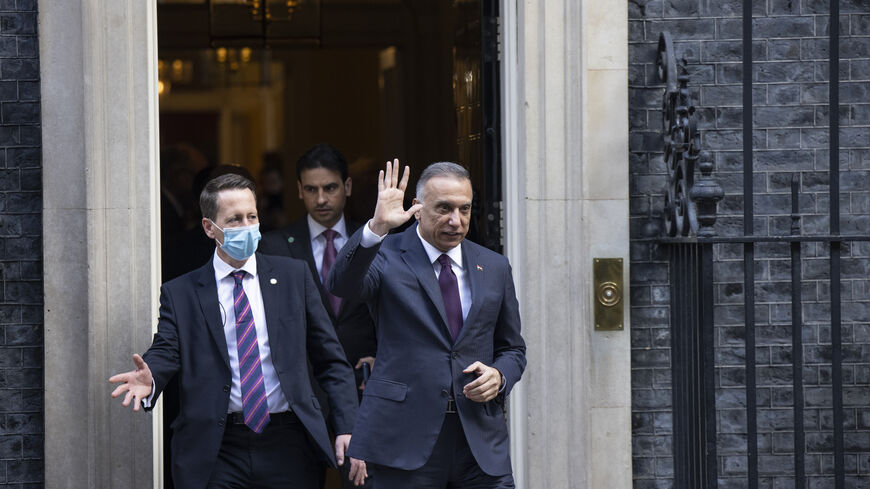Iran and Saudi Arabia reached an agreement last Friday to resume diplomatic relations. The negotiations between the two countries had been initiated by Iraq, but the final agreement was reached and signed by the two countries' national security chiefs in Beijing.
Both countries afterward praised Iraq's prior mediation, and Baghdad hopes to find a further role for itself.
Background of Iraq's role
The relationship between Tehran and Riyadh had been severed since 2016. Iraq has a long border with both countries and is home to millions of Shiites and Sunnis. Between 2019 and 2021, a number of attacks occurred against Saudi Arabia, some of which were blamed on Iraqi militias backed by Iran.
In an attempt to ease tensions, Iraq initiated mediation between Iran and Saudi Arabia. The initiative began in 2019, mostly passing messages between the two sides, delivered through Iraq's intelligence services, that were headed at the time by Mustafa al-Kadhimi, a year before he became prime minister.
When Kadhimi came to the premiership in mid-2020, the negotiations evolved into face-to-face talks between the delegations in Baghdad. Five negotiations sessions were held between 2020 and 2022.
According to multiple sources who spoke to Al-Monitor, the meetings were attended by the director general of the Saudi General Intelligence Directorate, Khalid bin Ali Al Humaidan, and the deputy secretary for foreign policy and international security on Iran's Supreme National Security Council, Said Irawani. Due to security concerns, the meetings were held in a secret place at the Baghdad airport, all led by Kadhimi himself.
At the fifth meeting, the two delegations designed a road map for settling their differences, including sending technical teams to Riyadh and Tehran to inspect the embassies and consulates; reopening Iran’s representative office to the Organization of Islamic Cooperation located in Jeddah; and supporting a cease-fire in Yemen.
The meetings resulted in a successful hajj for Iranians in Saudi in 2022, when the Iranian official delegation, including the representative of the supreme leader, took part in the pilgrimage. The direct talks also contributed to the ceasefire in Yemen last year, as well as the Saudis' facilitating the transfer of Iranian Ambassador to Yemen Hassan Irloo to Tehran after he contracted COVID-19 in late 2021. An Iraqi aircraft flew him home, where he died a few days later.
In June 2022, Kadhimi visited Jeddah and then Tehran to prepare for the sixth session that was supposed to be attended by the two countries' foreign ministers. However, it did not take place due to the tense security situation in Baghdad after the Sadrists stormed the Green Zone followed by a bloody clash with the militias. The unrest in Iran also escalated the tensions between Iran and Saudi Arabia.
What was agreed in China?
Sources confirmed to Al-Monitor that China showed interest in the mediation between Iran and Saudi Arabia during Chinese President Xi Jinping's visit to Riyadh last December and Iranian President Ebrahim Raisi's visit to Beijing in mid-February. Both Saudi Arabia and Iran welcomed the initiative.
The Beijing agreement is based on the following three points: “The security cooperation agreement between Iran and Saudi Arabia,” signed in 2001; “The general agreement for cooperation in the field of economy, trade, investment, technology, science, culture, sports and youth,” signed in 1998; and the outcome of the fifth session of the negotiations in Baghdad, including the agreement to reopen the embassies and normalize the relationship. Both parties affirmed respect for the sovereignty of the states and noninterference in each other's internal affairs.
The last clause refers to the alleged support for opposition groups in the two countries, in addition to the media wars over the last few years. Iran accuses Saudi Arabia of supporting separatist groups in Iran's southern provinces of Khuzestan and Sistan and Baluchistan, which Iranian authorities accuse of carrying terrorist attacks inside the country. Saudi Arabia also accused Iran of supporting Iraqi militias that attacked Saudi facilities from Iraqi soil, in addition to the support to the Houthis in Yemen, and Hezbollah in Lebanon which in turn is involved in the Yemeni war.
Iran and Saudi Arabia also thanked Iraq and Oman for their role in reaching the agreement. As a result of the Baghdad meeting, Iran and Saudi Arabia agreed in 2020 to hold regular meetings in Muscat at the intelligence level in order to exchange security information and concerns.
What role can Iraq play going forward?
Iraq, sitting between the two countries, is an obvious place for continued mediation, as it tries to build an economic partnership with both Saudi Arabia and Iran.
Iraq invited the Saudis to invest in the agriculture and industry of the southern provinces in 2020 and it signed a deal with Saudi Arabia for electricity grid connection in 2022. In addition, it opened two border crossings with Saudi Arabia in 2020-22.
Iraq has also been hosting negotiations between Iran and Jordan, and it is preparing for regional negotiations between Iran and Egypt. The Beijing agreement will encourage these tracks as well, providing more support to Iraq in its regional reconciliation mission.







